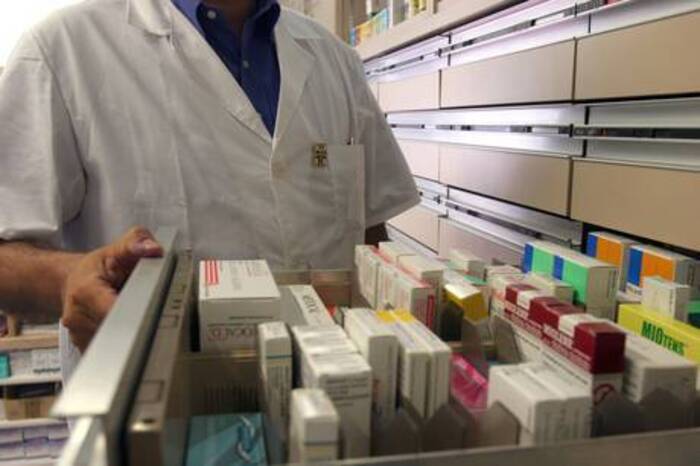In Italy, an essential drug for people suffering from pancreatic diseases has become unobtainable.
The medicine (Creon or Creonipe), unlike almost all medicines, has no analogues that can replace it on the Italian market.
The shortage has been going on for several months, but reports from patients have increased in recent weeks.
Among them also Fedez: "Since I had pancreatic surgery, and almost all of my pancreas was removed, I need to take pancreatic enzymes to be able to assimilate food," he said on Instagram.
"I'm receiving lots of emails; it seems that pancreatic enzymes can no longer be found in pharmacies. I had a small supply but they haven't been available for a month now and now I can't find any anymore."
The ministry has made it known that it is following the issue "with great attention and is implementing all relevant activities aimed at guaranteeing the therapeutic continuity of patients".
The situation, he added, is "independent of the regulatory activities of Aifa, which has long provided patients and healthcare workers with adequate information, including operational information".
The last time last October the Agency reported the problem, warning that it could continue until the end of 2025. Among the measures to contain the problem, AIFA invited doctors to use the medicine appropriately and economically.
Previously, it had also already authorized local institutions to import the product from abroad and prohibited the export of the drug present in Italy.
For its part, Viatris, the only company distributing the product in our country, has opened a direct channel with pharmacies to allow supply directly from the source.
The company, however, does not produce the medicine itself: we have "received indications from the company producing the medicine, Abbott, of some difficulties in the supply of Creon (pancrelipase). The supply difficulties are due to the high demand globally ", he tells ANSA.
“We are in daily contact with the manufacturing company to mitigate supply challenges and reduce the impact on patients,” he continues.
The manufacturer "has assured us that it is taking all necessary measures to make Creon available, so as to minimize the impact on patients".
However, the measures implemented so far do not seem to have unblocked the situation.
The advice is to "take a slightly reduced dosage for a period" rather than suspending it completely, says the deputy director of the Center for Research and Treatment on Pancreatic Diseases of San Raffaele in Milan and general secretary of the European Pancreatic Club, Gabriele Capurso .
Which, addressed to patients, recommends "don't panic because the product is lacking, but it is not out of production".
These drugs contain those enzymes that the pancreas - because it is diseased or removed, for example in the case of a tumor - cannot produce.
These are essential enzymes for breaking down foods into essential nutrients which the body then needs for vital functions.
The greatest difficulties are with fats: the pancreas is the only organ that produces lipase, the protein used to absorb fats.
For some patients, a prolonged period of abstinence from the drug means facing the risks of malnutrition.
This is also why some are turning to foreign pharmacies, especially in Switzerland or Eastern countries.
Already in 2017 and 2020 the same problem occurred "and as a patient association, reports Gianna Puppo Fornaro, president of the Italian Cystic Fibrosis League (LIFC), "we constantly monitor the distribution, reporting the shortage to the pharmaceutical company so as to request supplies with a urgently where necessary".
The expert, 'it is better to reduce than to suspend pancreatic treatment'
"What I would like to say to patients is 'Don't panic because the product is lacking, but it is not out of production'". Thus Gabriele Capurso, deputy director of the Center for Research and Treatment on Pancreatic Diseases at San Raffaele in Milan and secretary general of the European Pancreatic Club to ANSA regarding the shortage of the drugs Creon and Creonipe essential for the treatment of certain pancreatic pathologies. These drugs cannot be replaced by other therapies in Italy because there are no similar products.
“The shortage problem is real.
I receive many emails every day from my patients who have difficulty finding the drugs", adds Capurso who, in case of extreme difficulty finding the drug, advises patients: "It is better to take a slightly reduced dosage for a period than to suspend it completely, from since without this therapy fundamental nutrients are not absorbed."
The shortage, he explains, is connected to a mix of factors.
First of all, the production aspects: “The drug contains pig enzymes for which very high safety standards are required;
a type of drug for which it is difficult to rapidly increase production”.
Furthermore, “the only Italian distributor purchases the active ingredient from a third-party manufacturer”;
finally, the peculiarities of the Italian market: "Italy, together with Spain, is one of the few countries in which there are no similar drugs that can replace the lacking ones".
For the specialist, the situation is destined to continue.
For this reason he asks for greater commitment from both the institutions and the company.
“There are Regions and individual local health authorities that are moving to independently import the product from abroad.
However, given the extent of the shortage, coordinated action at the national level would be appropriate,” he says.
“Perhaps the company too could do more: as a European scientific society we have asked that a portion of the packs distributed in countries where substitutes exist be diverted to countries where patients have no therapeutic alternatives to guarantee equal access to a essential drug,” he concludes.
Reproduction reserved © Copyright ANSA

